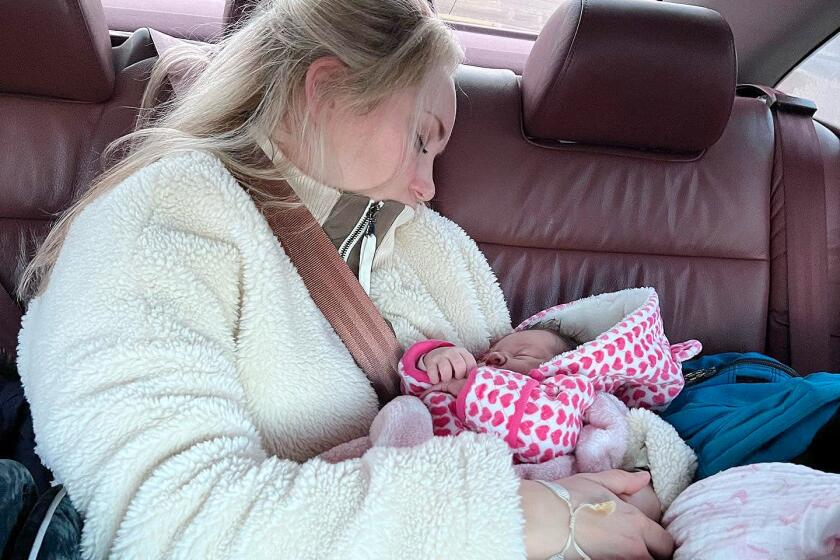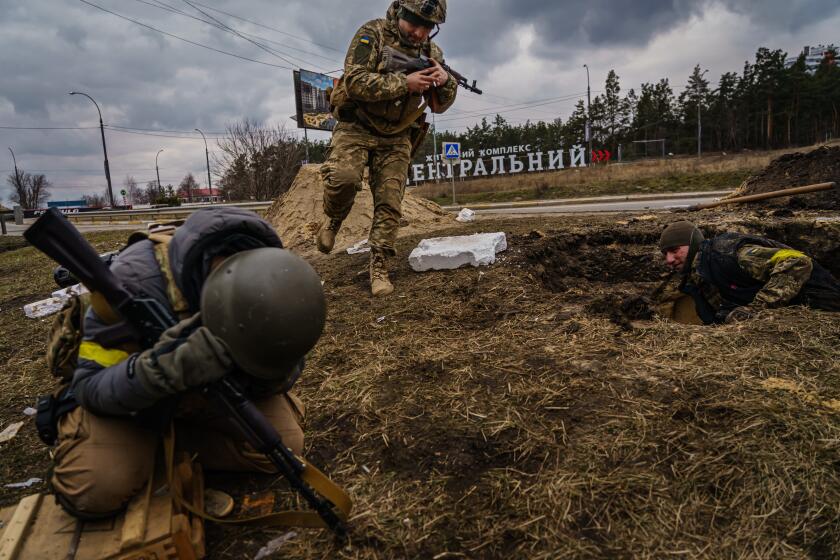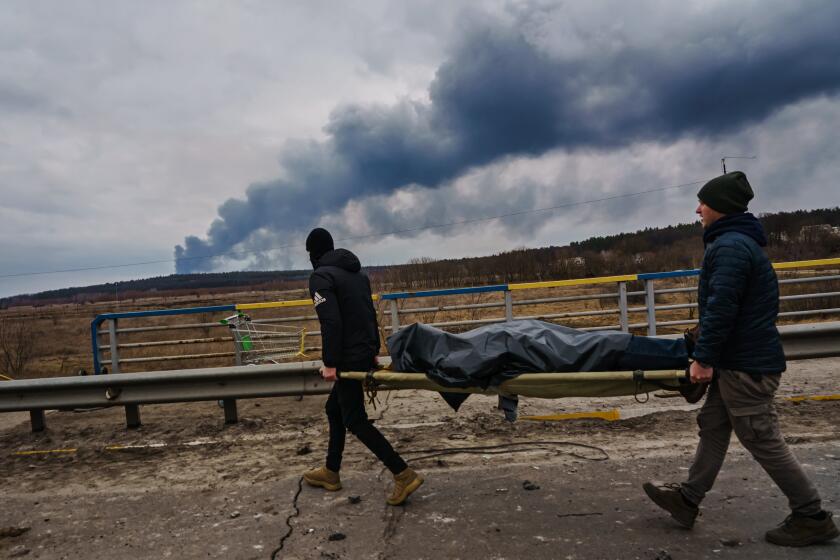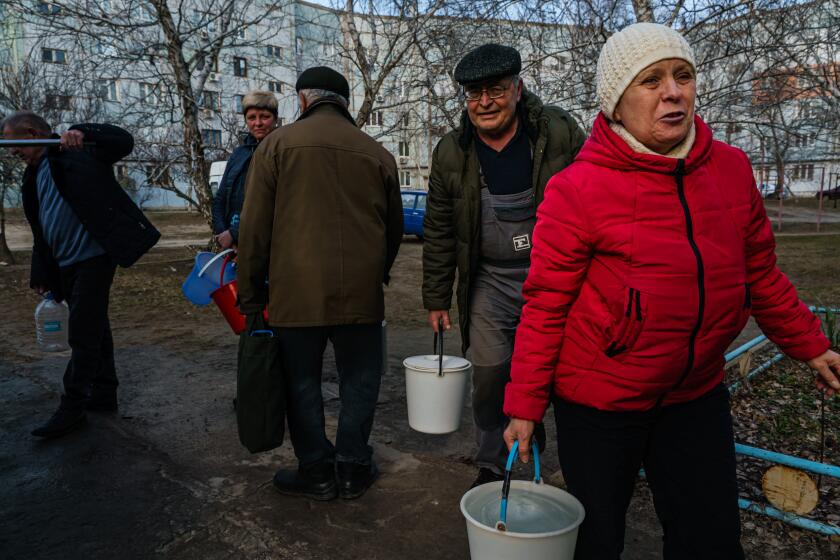O.C. couple and newborn who escaped Ukraine are back home. What happened to their surrogate?
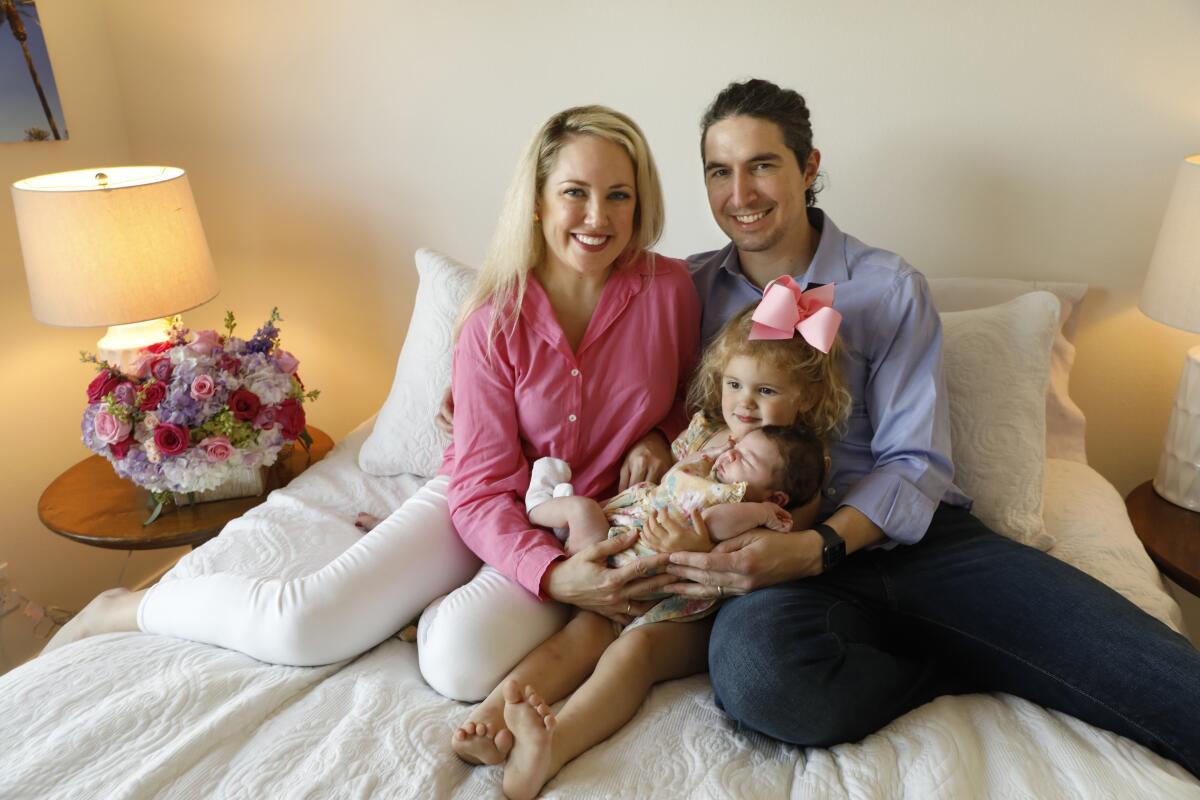
Jessie and Jacob Boeckmann felt relieved when they set foot in their Costa Mesa home last Tuesday. After a harrowing escape from Ukraine during last week’s Russian invasion, they’d finally made it to safety with their newborn daughter, Vivian.
Their other daughter, 2-year-old Mary, greeted “Mama” and “Daddy” by jumping up and down with excitement. Grandparents who’d flown in from across the country took turns fawning over little Vivian. There was cooing, laughter and bubbly sipped in celebration.
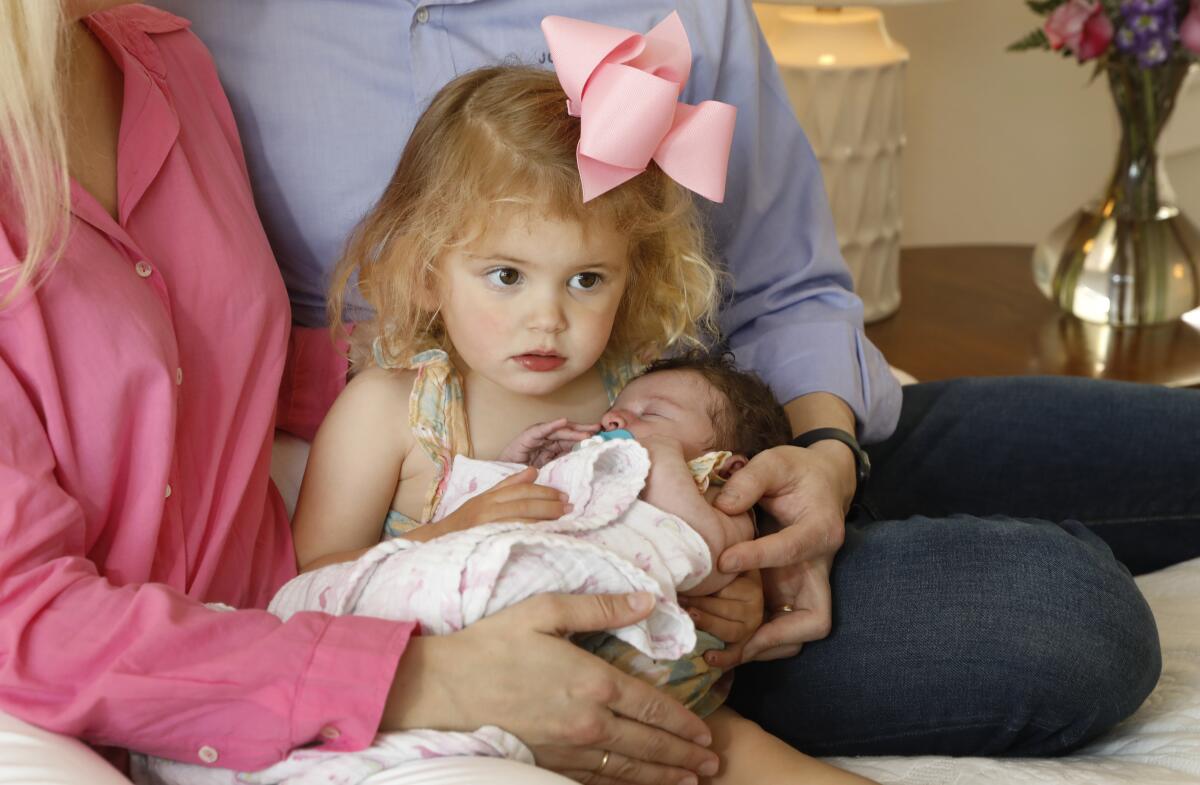
But at one point, Jessie looked around. She paused and thought, “I live in this safe house. I have food to eat. I’m going to go to sleep in a warm bed and not be worried about being woken up in the middle of the night by bombs.”
Despite the joyous reunion, the Boeckmanns say they have “survivor’s guilt.” They can’t stop thinking of the people left behind in Ukraine — especially the surrogate mother who gave birth to Vivian, Lilya, who lives about 150 miles southwest of Kyiv. (Lilya did not want her last name published for security reasons.)
About the same time on Feb. 24 that the Boeckmanns and Vivian left the hospital in Kyiv to start their journey back home, Lilya was discharged from the hospital to an apartment she was sharing with other surrogate mothers.
Jessie and Jacob Boeckmann, of Costa Mesa, escaped from Ukraine with their newborn in an effort to flee from the Russian invasion.
That night, a section of her apartment building, several blocks long, was bombed by Russian forces advancing upon the city. Her unit wasn’t hit. She made it out unscathed. By Saturday, she was at home with her two daughters, ages 7 and 14.
Since then, Russian forces have heavily shelled Lilya’s village, said Jessie, who texts with her and others in Ukraine nearly every day.
In an interview last Thursday, Lilya told The Times that food prices were five times higher than usual. If the war doesn’t end soon, she said, she probably will have to tap into her savings to survive.
“How can we help you?” Jessie texted Lilya last week. “Can we help get you and your girls to the U.S.? You can live with us?”
Ukrainian troops in Irpin, on the outskirts of Kyiv, dig in as a long column of Russian tanks advances toward them. They vow to fight to the end.
Lilya didn’t respond. But she told The Times that she doesn’t want to leave Ukraine. She doesn’t want to leave behind her husband, who has joined the fight, along with thousands of other Ukrainian men defending their land. She loves her country. Lilya said she would’ve joined the fight, too. But she has nowhere to safely leave her children.
Most days, Lilya texts Jessie, asking about Vivian and Mary. They communicate on Viber — a translation application. Lilya speaks only Russian.
“This is the sweetest child,” she texted when Jessie sent her a photo of Vivian wrapped in a fuzzy pink blanket decorated with white stars.
“She is an angel. She had a good home for 9 months,” Jessie responds.
It’s cold and snowing in Ukraine. Lilya said she cries every day. Her daughters are afraid. Every time a helicopter hovers above their house, her girls cower in fear. But they “wake up every day grateful to God that we are alive.”
Lilya said that her 7-year-old daughter is having the hardest time. She’s afraid to be alone in her room. She constantly talks about Russia and Putin.
“I do not have love for Putin,” she tells her mom. “What did we do to Russia? Why is Russia at war with us?”
Lilya doesn’t know how to respond to those questions.
Over the weekend, her 7-year-old put on three sweaters. She packed a bag in case she needs to “run.” She packed a small pillow and bedspread. No toys.
Hundreds of thousands of people seek to flee Ukrainian cities under heavy assault by Russia. The Pentagon sends 500 more U.S. troops to Europe.
“Mom, I’m ready,” she told Lilya.
Lilya hugged her hard. The mom knows there is “nowhere to run.”
Their house is old, and they can’t use their basement. It’s closed off because it needs repair, Lilya said.
No matter, her youngest tells her. She’ll run to the neighbor’s basement or simply “run away when they shoot.”
“Everything will be fine,” Lilya tells her youngest. “Our Ukraine is strong, and we will soon end the war.”
At times, Lilya gets calls from her mother, who now lives in Russia with her Russian boyfriend.
“Putin is trying to save you,” her mother told her. Lilya stopped taking her mom’s calls.
Three organizations with operations in California are helping people in eastern Ukraine, and so is the Red Cross. Here’s how you can contribute.
During the day, Lilya tries to distract herself and her daughters from the war. At first, she and her girls baked buns with cinnamon or cakes. But then they ran out of milk. Now, her eldest daughter weaves or studies English. Lilya reads to her youngest.
They no longer go for walks. Sometimes they step outside into their backyard for fresh air but they don’t stay long because, she said, her children are scared.
Jessie said it’s difficult to see the situation deteriorate in Ukraine. Other than giving to charities, she doesn’t quite know how else to help. Lilya still hasn’t responded to Jessie’s offer to help.
On Monday, Lilya worried about how long the war would last. She has searched for milk for the last two days without much luck. And the cost of food increases every day.
She fears she and her girls will soon go hungry.
More to Read
Sign up for Essential California
The most important California stories and recommendations in your inbox every morning.
You may occasionally receive promotional content from the Los Angeles Times.
